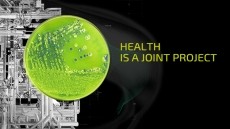Heparin declared "safe", China remains nonchalant
previously-tainted heparin supply to be "safe" due to
stronger testing and controls that are now in place. Meanwhile,
China continues to distance itself from the matter.
While in Shanghai last week, FDA Health and Human Services (HHS) secretary Mike Leavitt told the media that these tighter controls "will ensure" that no more contaminated heparin products make their way into the US.
"
The FDA is satisfied that that which is coming into the United States is safe ," he reportedly told the Associated Press (AP).
" We have put in place processes that we believe can ensure the safety of the heparin supply within the United States ."
France, Italy, and Denmark, the US, Germany, Switzerland and Japan are among the countries to recall heparin products after a heparin contamination scare over product materials linked to China.
Baxter's heparin was the first to be found to contain the contaminant in February after the FDA received hundreds of reports of serious injuries and/or deaths in patients who had been administered heparin made by the company.
Baxter subsequently pulled its product from the market while an investigation ensued.
The company had sourced its refined API from Scientific Protein Laboratories (SPL), who had sourced the raw material from China.
The lots in question were recalled in February.
It has since been revealed by an FDA investigation that the drug lots in question were contaminated with a substance called oversulfated chondroitin sulphate, which is made from animal cartilage and is a cheaper alternative to raw heparin, which is normally derived from pig's intestines.
It is not approved for use in medicine.
Elaborating on the tightened controls, Leavitt said that from now on, all importers of drugs and other products into the US "must prepare to meet more stringent guidelines of quality and safety, following a raft of product safety problems stemming from lax standards among overseas producers, especially China".
However, he did concede that the current system is only a short-term solution.
" We believe the system that we have for ensuring safety is a good one but completely inadequate for the future ," Leavitt told the AP.
" What you'll see from the US is a substantial change in our strategy ," he said, eluding to the agency's plans to station officials in overseas posts such as China in order to keep a closer eye on the regulatory situation.
However, despite Leavitt's claims, the FDA is yet to even determine how, why or when the contaminant entered the heparin supply chain.
Moreover, the agency is yet to receive full co-operation from its Chinese counterpart, the State Food and Drug Administration (SFDA) over the investigation of matter.
In February, FDA inspectors conducted an inspection of the Changzhou SPL plant in question and subsequently issued it with a warning lettter aftger
its inspection uncovered " significant deviations " from current good manufacturing practice (GMP) within the facility.
It also banned any imports from the company until further notice.
Despite this, it has been reported that in recent government testimony by an FDA inspector that the agency has been barred from investigating the matter further down the supply chain, having been denied complete access to two of Changzhou SPL's suppliers of crude heparin.
Meanwhile, it was also revealed that the FDA is currently relying on some companies to voluntarily quality control test their heparin ingredients for contamination before they distribute their supplies in the US.
In addition, China has so far refused to acknowledge that oversulphated chondroitin sulfate had anything to do with the heparin reactions, despite scientific evidence to the contrary.
In a news conference in Beijing, the deputy director of China's National Institute for the Control of Pharmaceutical and Biological Products has claimed that his department still does not know what caused the deaths.
It is still " too early " to blame OSCS for the deaths of more than 80 people, he said.
He claimed that because Baxter destroyed the recalled drugs it was actually " impossible to determine " exactly what caused the deaths.
Blame is also being laid on the US company Scientific Protein Laboratories that actually owns Changzhou SPL, with China reasoning that the US parent company should " bear responsibility for the plant and its products ".












